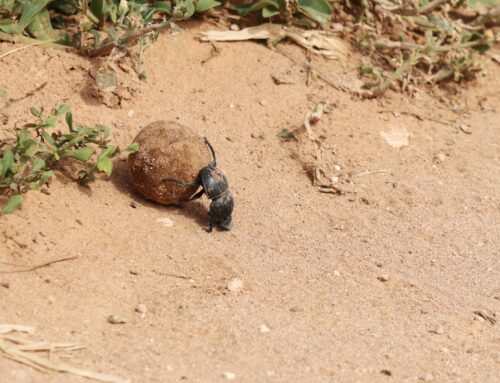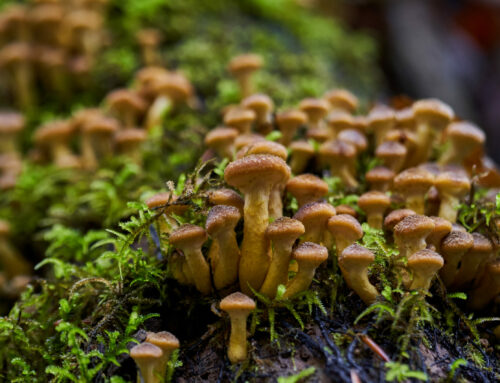For more than a year we are all threatened by an invisible enemy. Dealing with the COVID-19 pandemic caused by the SARS-CoV-2 virus has reached scientific, technological, medical and economic limits of the mankind.
As importance of the microbiomes for our health is being more and more accepted, let us check which knowledge about connections between microbiome and COVID-19 do we have and how can we use it in battling this terrible disease?
Microbiome and prevention of COVID-19
Immune system has a difficult task of differentiating self from non-self. Gut microbes have co-evolved with their hosts for millions of years and they are crucial for the proper development and functioning of our immune system. They help "teaching" cells of our immune system how to recognize foreign molecules (antigens) and, depending on what we feed to them, they produce metabolites which stimulate our immune system to attack pathogens or to secrete chemicals which boost body´s immune responses. In general, scientists agree that greater microbial diversity in the gut is associated with a stronger immunity, including a stronger anti-viral response.1,2
Wrong diet, advanced age, excessive use of antibiotics and drugs, obesity, diabetes, immune diseases or hypertension, are all factors which have been shown to decrease the diversity of the gut microbiome. Unfortunately, exactly patients with these conditions are the most vulnerable to the SARS-CoV-2 infection.3,4 Although detailed connections between gut microbiome and the susceptibility to COVID-19 are yet to be studied, one thing is sure: intervening with the gut microbiome by dietary habits, nutritional supplementation or fecal microbiome transplants (FMT) could potentially be a life-saver and contribute to the better overall immunity against COVID-19.4,5
Failure of the respiratory system, in the medical jargon often named as "Acute Respiratory Distress Syndrome or ARDS", is the most dangerous and potentially lethal progression of COVID-19. It has been shown that the metabolites produced by the gut microbes influence immune responses in our lungs and the signals from the lungs (for example, molecules released during lung inflammation) influence our gut microbiota. In the literature, this is often related to as microbial "gut-lung-axis".4,6 Besides lungs, microbes in our mouth, nose and throat also contribute to the SARS-CoV-2 infections and can eventually lead to co-infections with other pathogens, further complicating clinical picture. Microbiome-based oral or nasal sprays or mouth washes have been proposed as immediate prevention of the SARS-CoV-2 infection.7
Finally, in the following months, hundreds of millions of people around the globe will be immunized against COVID-19. Although very seldom, vaccines can trigger serious side effects, especially in elderly and people with weakened immune system.8 Enhancing immunity through the microbiome interventions could also positively influence the global anti-COVID-19 vaccination campaign.
Microbiome, disease progression and treatment of COVID-19
Significant changes in the gut microbiome have been reported in several recent studies and gut dysbiosis (disbalance of the gut microbes) has been observed in the majority of COVID-19 cases with the severe disease progression. In support to these findings, around 40% of the severe cases of the SARS-CoV-1, a 2003- epidemic causing virus related to SARS-CoV-2, have been also diagnosed with a gut dysbiosis.3,9–11
Here we will list several possible connections between the gut microbiome and the COVID-19 progression which need to be urgently addressed in the near future.
First of all, our gut bacteria can directly interact with the viruses, either facilitating viral infection or preventing it by secreting anti-viral compounds or, as previously mentioned, by stimulating our immune system. However, boosting our immune system too much is not a good thing. For example, if the cells in our lungs are being destroyed due to an inflammation, they induce release of the pro-inflammatory chemicals called cytokines and, if our immune system has been already triggered by another inflammation (e.g. due to the gut dysbiosis), a dangerous, massive release of the immune chemicals, called "cytokine storm" can occur. Most of the COVID-19 caused deaths of the patients with the acute respiratory distress syndrome (ARDS) or other organ failure, have been attributed to the cytokine storm. 12–14 Therefore, an enrichment of the gut microbiome with the specific microbial strains or their products (exhibiting or inducing anti-inflammatory activity), could be a game-changer in fighting serious COVID-19 progressions. A great recent example of the studies in this area is the company Kaleido Biosciences.
An enzyme called ACE2 (Angiotensin-Converting Enzyme 2), is the main entry route of the SARS-CoV-2 into human cells. ACE2 molecules are found on the cells of our blood vessels, our lungs and various other organs, including gut. They play a crucial role in the regulation of our blood pressure and have several other functions in the body. ACE2 regulation is complex and depends on genetic and environmental factors. Although the detailed interplay between ACE2 and COVID-19 is not clear yet, increased gut ACE2 levels have been detected in many severe patients and generally, ACE2 is increased in gut dysbiosis and in pro-inflammatory conditions. Inversely, some species of the gut bacteria decrease ACE2 levels and also amount of the SARS-CoV-2 in the fecal samples.4,9,15
In general, anything that brings our gut microbiome in disbalance is a potential risk factor for bad COVID-19 progression. Besides pre-existing health conditions, patients on multi-drug medication are especially vulnerable group. Unfortunately, many of the medications used as standard COVID-19 treatment, such as antibiotics, paracetamol or glucocorticoids, are known to cause gut-dysbiosis. 3,12
Microbiome and COVID-19 recovery
Fatigue, cough, chest tightness, breathlessness, heart palpitations, muscle pain and difficulty to focus are some of the symptoms reported to persist from weeks or months in few patients after COVID-19. They are often called "Long COVID" or "Post-COVID syndrome". Reasons for Post-COVID syndrome are unknown but can be organ damage or a persistent state of low inflammatory condition in the body.16 For the latter, gut microbiota could play an important role and several lines of evidence are actually supporting this hypothesis. For example, many COVID-19 patients show gastrointestinal symptom (e.g. vomiting, diarrhea) while others don´t. A recent study have shown presence of gut dysbiosis in post-COVID-19 patients up to 30 days after release from hospital. Gut dysbiosis also seems to be independent of the antibiotic therapy during infection, emphasizing a need for limited use of antibiotics, unless in cases of secondary bacterial infections. 3,11 How much is the gut dysbiosis a predisposition for COVID-19 outcome and how much is its consequence, is a question still to be answered. Further studies should investigate connection between nutrition, gut microbiota and recovery from COVID-19 in more details.
1. Negi, S., Das, D. K., Pahari, S., Nadeem, S. & Agrewala, J. N. Potential Role of Gut Microbiota in Induction and Regulation of Innate Immune Memory. Front. Immunol. 10, (2019).
2. Segal, J. P. et al. The gut microbiome: an under-recognised contributor to the COVID-19 pandemic? Ther. Adv. Gastroenterol. 13, 1756284820974914 (2020).
3. Villapol, S. Gastrointestinal symptoms associated with COVID-19: impact on the gut microbiome. Transl. Res. 226, 57–69 (2020).
4. Spagnolello, O. et al. Targeting Microbiome: An Alternative Strategy for Fighting SARS-CoV-2 Infection. Chemotherapy 1–9 (2021) doi:10.1159/000515344.
5. Din, A. U. et al. SARS-CoV-2 microbiome dysbiosis linked disorders and possible probiotics role. Biomed. Pharmacother. 133, 110947 (2021).
6. Khatiwada, S. & Subedi, A. Lung microbiome and coronavirus disease 2019 (COVID-19): Possible link and implications. Hum. Microbiome J. 17, 100073 (2020).
7. Bao, L. et al. Oral Microbiome and SARS-CoV-2: Beware of Lung Co-infection. Front. Microbiol. 11, 1840 (2020).
8. Torjesen, I. Covid-19: Norway investigates 23 deaths in frail elderly patients after vaccination. BMJ 372, n149 (2021).
9. Zuo, T. et al. Alterations in Gut Microbiota of Patients With COVID-19 During Time of Hospitalization. Gastroenterology 159, 944-955.e8 (2020).
10. Zuo, T. et al. Depicting SARS-CoV-2 faecal viral activity in association with gut microbiota composition in patients with COVID-19. Gut 70, 276–284 (2021).
11. Yeoh, Y. K. et al. Gut microbiota composition reflects disease severity and dysfunctional immune responses in patients with COVID-19. Gut 70, 698–706 (2021).
12. Donati Zeppa, S., Agostini, D., Piccoli, G., Stocchi, V. & Sestili, P. Gut Microbiota Status in COVID-19: An Unrecognized Player? Front. Cell. Infect. Microbiol. 10, 576551 (2020).
13. Hojyo, S. et al. How COVID-19 induces cytokine storm with high mortality. Inflamm. Regen. 40, 37 (2020).
14. Han, H. et al. Profiling serum cytokines in COVID-19 patients reveals IL-6 and IL-10 are disease severity predictors. Emerg. Microbes Infect. 9, 1123–1130 (2020).
15. Oz, M. & Lorke, D. E. Multifunctional angiotensin converting enzyme 2, the SARS-CoV-2 entry receptor, and critical appraisal of its role in acute lung injury. Biomed. Pharmacother. 136, 111193 (2021).
16. Raveendran, A. V., Jayadevan, R. & Sashidharan, S. Long COVID: An overview. Diabetes Metab. Syndr. Clin. Res. Rev. 15, 869–875 (2021).





